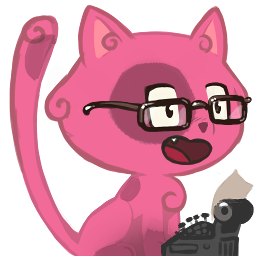Happy birthday 🎊🎉 GNU/Linux.
Today GNU/Linux is 32 years old.
It was thankfully released to the public on August 25th, 1991 by Linus Torvalds when he was only 21 years old student.
What a lovely journey 🤍
Did stallman coat-tail Linux on day one, or did he latch onto the “ackshually, it’s got some gun in there so we deserve top billing” only a little after?
No, its because Linus Torvalds doesn’t consider libre software to be important. Torvalds sucks when it comes to free software.
GNU Hurd is an incredibly important project because there can’t be just one “free software kernel.”
Richard Stallman doesn’t care about popularity. He already changed the world. What he does care about is people forgetting their commitment to freedom.
He doesn’t give a shit if people say Linux, he does give a shit if people are “marketing” Linux without an emphasis on freedom.
Something that many have failed in.
What’s holding GNU/Hurd back? Can’t be hardware anymore since it became blazing fast
Nothing is holding hurd back. Debian and GNU Guix both ship hurd. The world has failed hurd instead.
Hurd will never accept firmware blobs or proprietary drivers. Thus, it will not work on OEMs who use those tactics for their machines. You are still able to install hurd in a VM as those have libre standards.
This is true for all GNU packages, not just hurd.
Oh that’s sad. The nature of commerce and competition means that proprietary stuff will never go away because making closed stuff is the way MBAs are taught to create “competitive advantage”
The strategy of the GNU project is to create and support as much free software as possible to make proprietary software obsolete.
Firmware is one of the biggest hurdles as the freeworld has the userland locked down for the most part (albeit some editing software like CAD or becoming feature competitive with photoshop).
There will always be people seeking to control others through dirty licenses and EULAs. The solution is not to target them (yet!) but to reject them and empower ourselves.
If that means not being able to use a wifi card: use an adapter! Or use ethernet. If that means we can’t get microcode, we’ll find cpus unencumbered by patents or reveree engineer them. Want to use an apple m1? There are people trying to liberate that machine as much as possible.
I thought it was funny that at one point he said “It’s not like I want to call it Stallmanix!”
Probably after he gave up on his own kernel (Hurd) being a viable competitor.
I hate this language, its so fucking dehumanizing. “Viable competitor” is such bullshit. Torvalds gave away his commitment to freedom with binary blobs. That’s his decision to do. But to label Hurd on that same level is the biggest disservice to history you could ever do.
Hurd will never be the “viable competitor” because you hold selfish attitudes about how makes software valuable or not.
Torvalds sold out. Hurd didn’t.
“Torvalds sold out.” Would you mind elaborating what you mean by selling out in this context?
Top members are all companies that have made bank abusing their users to no end. Linus Torvalds refuses to upgrade to GPLv3 because he doesn’t see the value for enforced freedom restrictions. He is a “freedom for me, but not for thee” type of person. Hurd on the other hand will never suffer this issue because of it being a GNU package.
The kernel is filled to the brim with nonfree firmware blobs. These blobs can be updated/modified by the vendor but not by the user, by that definition, they are nonfree. You could say that Linus Torvalds chose the “pragmatic” option. You wouldn’t be wrong to deduce that none of the companies on that board member list would EVER contribute to the kernel if they had to also respect the user’s freedom.
But that’s the thing, Torvalds still sold out. Scandals like the proprietary Nvidia driver (which will now get its home in nonfree firmware) gets to happen (and will continue to happen) because the precedent was set. Torvalds historically didn’t even want to liberate his kernel until he was convinced by the work of the GNU project to do so.
Torvalds is the poster boy because he does not threaten any sort of status quo. No one is immune to propaganda, and the Torvalds “Open Source” media narrative is still the dominant one. The GNU/Linux vs. Linux controversy is propelled by this Faustian pact.
Scandals like the proprietary Nvidia driver (which will now get its home in nonfree firmware) gets to happen (and will continue to happen) because the precedent was set.
Doesn’t this depend a lot on the vendors having a lock-in on the GPU market? Semiconductor manufacturing is super expensive and there is little incentive for Nvidia to release a Free as in Libre device driver. There aren’t any FOSS GPUs in development so FOSS drivers can’t be made.
So we either have the choice of accepting proprietary drivers or just not using the functionality of GPUs.
Linus Torvalds has a large political influence, even he couldn’t hold back and flipped off Nvidia. But Torvalds and the rest of the foundation don’t go further than that. They’re willing to criticize but not to condemn.
You’re right in that the larger hardware industry is an even bigger shithole artifice than IT is. Thats a failure of state actors who have an open secret of corruption (esp in the US) and laziness. Projects like RISC-V and coreboot are promising in that regard.
So we either have the choice of accepting proprietary drivers or just not using the functionality of GPUs.
Thats just life. This is still a transitionary period. But soon in the future, all software will be libre and all proprietary elements will be purged, never to come back ever again.
So we either have the choice of accepting proprietary drivers or just not using the functionality of GPUs.
Thats just life.
If you’re willing to accept that, then why are you so critical of Linus? The fact that you can build a fully free version of Linux seems like the best of both worlds. From your perspective: get market share now by allowing non-free components, and then eventually transition them out while maintaining compatibility with the majority of the ecosystem.
Have these members made any notable changes that hampered Linux’s freedom? How is not adding more restrictions for freedom to allow more freedom “not for thee”? How did “Torvalds historically didn’t even want to liberate his kernel”? It was open-source from the start, and also had his self-drafted free license which he later switched to GPL which also removed his no commercial distribution clause. By your arguments that sounds like he sold out to GNU. The FSF is way too idealistic to be able to move the world under the current status quo.
Intel and AMD both have tons of blobs that they ship to the kernel. Google has Android which relies on more nonfree firmware and proprietary user space. ChromeOS is also another example.
Strict copyleft has always shielded contributions from being used nonfree programs, ensuring their freedom. Weakened copyleft or pushover licenses should only be used in certain circumstances.
“Open source” was not a concrete concept back then. It was certainly not as we know the concept today. The noncommercial clause in torvald’s initial license would not comply with the 4 freedoms, thus it was proprietary.
Torvalds didn’t “sell out” to GNU. He liberated his own project for use in the GNU Operating System which is and always will be a project to create a fully free operating system.
Libre != noncommercial, neither are virtually all definitions of the modern open source movement. If torvalds were to sell out he would have kept his kernel as it was.
The FSF is not “too idealistic.” It is simply an organization dedicated to a set of standards for software freedom. They solve problems related to living without nonfree software and share those solutions.
The real “idealistic” world is the status quo, where all humans are meant to grovel at the IT tyrants as computer science becomes more and more stripped away from public conciousness. It is idealistic to think that human citizens would not revolt against this system and expose it for the parasitic shell that it is.
The FSF is a response to freedom being stripped away from us day by day. The reason you didn’t think of it that way is because no one is immune to propaganda blasted to you 24/7.
Every good natured family member who tells you to use facebook, every peer who tells you to go on a discord “server.” Every weak redditor. The huge amounts of e-waste produced by OEMs with little to no regulation. And all the kids who are being raised under the jailphones of iOS and Android. This is all propaganda designed to manufacture consent for you swindling away your freedom to privacy and computer science. If the ghouls could convince you that computers were magic, they would.
Why would this not spawn the most fierce resistance campaign that spans the entire globe? One that is unyielding and hostile to threats?
And why wouldn’t one want you to think that they’re too “idealistic?”
macOS is based off FreeBSD, which is completely free. Not sure what you mean here. I don’t really see much documentation that shows GNU made Linus use GPL or not. You can’t assert that.
Being dedicated to software freedom doesn’t exclude you from being idealistic. They propose solutions that would require good sacrifices that many greedy people simply won’t follow. If you really think the status quo is “idealistic” then you don’t know what that word means. Computer science is already very much in the public consciousness and corporations have already been exposed, but they still operate. It’s idealistic to think they would sacrifice their greed. Despite how much software the FSF have funded, they’re still unable to attack.
Linux is a practical response to non-freedom. “sell out”, “liberated”, “changed his license” is all just word choice. There is still a long gap between open-source and proprietary. Nobody should co-opt words, including that “open-source” shouldn’t be redefined to libre software. You can argue that any promotional stuff, including FSF, is propaganda being blasted to you 24/7. Yes, these are very awful, but we need workable alternatives that can do many of the same stuff to switch to before we can rejoin freedom.
How the heck does “viable competitor” mean “we’re totally free”. Why are you dehumanizing Torvalds just for supporting more drivers.
Linux is in development heaven. HURD is not so much.
@jsnc @JuxtaposedJaguar that seems a bit too “zealot” to me. And viable competitor is exactly the right phrase to use, or am I mistaken in thinking I use Linux instead of HURD?
It is a “zealot” opinion because I don’t topple over at the slightest breeze.
Both Linux and Hurd are libre software. However, the freedom of linux is compromised as torvalds set the standard for how OEMs can circumvent the GPLv2.
“viable competitor” is not the correct term to use. It miscontrues decades of history and circumstance.
Hurd is far better than Linux in terms of ensuring your freedom. But linux is better for getting more folks onto the freedom ladder. Linux however, isn’t the end goal: GNU is. If you don’t know what that means, congrats, you’re part of the problem.
GNU has their own kernel, called linux-libre, which follows the same set of principles as Hurd. It won’t function 100% on modern OEM hardware but its important as message towards freedom.
I use a blobbed kernel one if my machines, but I also have a librebooted debian thinkpad. I am intensely interested in a fully free OS, this is why i seem stubborn to those who don’t even keep what Im saying in mind.
My x220 uses intel microcode, that is nonfree software. However, I was convinced by the founder of libreboot’s (Leah Rowe) extensive writing to make it so. Im not completely stubborn, but Im also not careless.
If you don’t know what that means, congrats, you’re part of the problem
Ok you sold me, I’ll go back to windows. Fine job building a community.
No one is here to coddle your feelings. Enjoy being a loser bootlicker, you never cared in the first place and want to project that onto others.
deleted by creator
I don’t want to admit using Linux because I’m worried people might confise me with annoying self righteous ideologue twats like you. Same reason I don’t identify as atheist anymore.
Idk what you think you’re doing, but you’re not helping your cause. That much is for sure.
Ok you sold me, I’ll go back to windows. Fine job building a community.
So, you’re going to punish yourself because of what somebody said to you?
I don’t feel punished by stepping away from people like him. If my choices are that guy and his ilk or the occasional ad for bing, I’ll take bing. At least that goes away when you click a button.
Linux doesn’t have any GNU in it. Linux is a kernel that GNU runs on top of. That’s what Stallman means by “GNU/Linux.”
Maybe he is a little bitter about his life’s work and philosophy being erased by Linux fans, but that is understandable. Maybe he is a little too bitter.
People think it’s about Stallman being bitter. But it’s because GNU is a political project with the goal of total user freedom and control over their computer. The software is a step on the way there. But if people use free software without understanding, valuing or taking advantage of the freedom it gives them, the GNU project has failed.
I first recall him trying to shoulder surf Linux’s popularity not long after the XFree86 project switched to a new license that included an acknowledgement clause, so around 2004/2005. I still chuckle when I see that he wants me to call it GNU/Linux, but he has a shit hemorrhage because XFree86 added a license clause requiring similar labeling. He’s made more than his share of contributions, but he takes pedantry to a whole new level.
Actually it’s just called ‘Linux’
I’d just like to interject for a moment. What you’re refering to as Linux, is in fact, GNU/Linux, or as I’ve recently taken to calling it, GNU+Linux. Linux is not an operating system unto itself, but rather another free component of a fully functioning GNU system made useful by the GNU corelibs, shell utilities and vital system components comprising a full OS as defined by POSIX. Many computer users run a modified version of the GNU system every day, without realizing it. Through a peculiar turn of events, the version of GNU which is widely used today is often called Linux, and many of its users are not aware that it is basically the GNU system, developed by the GNU Project. There really is a Linux, and these people are using it, but it is just a part of the system they use. Linux is the kernel: the program in the system that allocates the machine’s resources to the other programs that you run. The kernel is an essential part of an operating system, but useless by itself; it can only function in the context of a complete operating system. Linux is normally used in combination with the GNU operating system: the whole system is basically GNU with Linux added, or GNU+Linux. All the so-called Linux distributions are really distributions of GNU+Linux!
I’d just like to interject for a moment. I agree that it is most accurately just called Linux.
The GNU project was an attempt to create a free POSIX compatible operating system. At least, that was the vision. Instead of starting with the kernel, as most OS projects do now, GNU started by writing the utilities and other important tools that such a system would use ( most notably the C library and C compiler ). In practice, GNU became an alternative userland that ran on the proprietary UNIX systems of the day. Even MINIX, while being a teaching OS, was proprietary and cost money. The only “free” UNIX was BSD and its existence was being threatened as it was being sued by AT&T ( inventors of UNIX ). Linus set out to create a “free” ( as in money ) POSIX system because none existed. His job was made significantly easier because of the existence of GNU and especially GCC and Bash which Linus selected because they were free ( yes, as in freedom but more important to him at the time — in terms of money ).
Ironically, nobody used the term GNU / Linux in the early days of Linux. That is despite the fact that GNU + Linux would certainly have been the best description of what Linux was in the 90’s.
These days though, the term GNU / Linux, while being politically important, is descriptively wrong.
First, a relatively small fraction of the software installed on a typical Linux desktop is provided by the GNJ Project. The parts that define the experience for the end user ( eg. desktop environment ) are not GNU. Huge systems like X, Wayland, and Mesa are not even GPL ( they are MIT licensed ). Almost none of the GUI applications people use are GNU.
True, most Linux distros ship the GNU userland. Not all though. Most importantly, what make a Linux distro a Linux distro is Linux, not GNU. GNU is not the important part.
Linux dominates in the cloud. These days, the most important aspect of that is Linux specific containerization ( eg. Kubernetes ). Perhaps the most widely deployed Linux in the cloud is Alpine which uses MUSL instead of Glibc and Busybox instead of the GNU core utils. It is not GNU / Linux but it is certainly Linux.
How is modern Linux gaming possible? Well, the emergence of things like Valve’s proton ( not GNU ) are certainly important. But GPU drivers like those from AMD and NVIDIA are even more important and those use infrastructure which is entirely Linux specific.
Look at the Debian project. When we say Debian, we think of Linux and certainly it is one of the distros most likely to be called GNU / Linux. Debian Linux is certainly a Linux and provides the full Linux experience. Debian also offers Debian HURD ( a true GNU system ). Are Debian Linux and Debian HURD the same? They are both “Debian”. The answer though is that they are not at all the same. Debian HURD cannot even host all Debian packages. The truth is that Debian HURD is unsuitable for a huge percentage of the people that daily drive Debian Linux today. You are certainly not gaming on Debian HURD ( it lacks the Direct Rendering Infrastructure for example ). You are not live steaming or video editing either.
How about software developers? I would argue that this is the audience that GNU was originally created for. Well, Debian HURD is unsuitable for them as well because Linux matters more than GNU. For most developers today, tools like Docker or Podman are vital and they depend on the Linux kernel completely to function. These days, these kinds of tools are more essential even than the compiler. You can switch from GCC ( GNU ) to Clang ( BSD - not GNU ) easily. But how are you using containers ( Docker / Podman ) or virtual machines on Debian HURD?
As an extreme example of a Linux workstation, Chimera Linux installs with basically zero GNU software by default ( MUSL again and the FreeBSD userland including Clang / LLVM instead of GCC ). From the perspective of an end-user, it is exactly like any other Linux. Chimera uses GNOME as the DE which is not GNU either.
I can make a Linux system that contains no GNU software and it is still Linux. I can do any of the things that I expect a Linux system to do ( as a desktop, as a server, or in the cloud ). GNU is historically important but, at this point in history, it is completely overshadowed and entirely non-essential. If I take away the Linux though, GNU offers me almost nothing that I expect from a modern Linux.
GNU is still trying to create a free implementation of the kinds of UNIX systems that Richard Stallman encountered in the 80’s. An improvement of such systems you could argue but then again, it still has not got there. For the GNU project to be taking credit for what modern Linux has become is totally ludicrous.
What you are referring to is Linux and, more specifically, certainly not GNU / Linux. “Linux” is not just the Linux kernel anymore—it is the massive ecosystem of software that was designed specially to run on Linux and to work together to create a Linux system. Often people use GNU on Linux but that does not give GNU the right to equal billing. Not anymore.
What the fuck did you just fucking say about me, you little bitch? I’ll have you know I graduated top of my class in the Navy Seals, and I’ve been involved in numerous secret raids on Al-Quaeda, and I have over 300 confirmed kills. I am trained in gorilla warfare and I’m the top sniper in the entire US armed forces. You are nothing to me but just another target. I will wipe you the fuck out with precision the likes of which has never been seen before on this Earth, mark my fucking words. You think you can get away with saying that shit to me over the Internet? Think again, fucker. As we speak I am contacting my secret network of spies across the USA and your IP is being traced right now so you better prepare for the storm, maggot. The storm that wipes out the pathetic little thing you call your life. You’re fucking dead, kid. I can be anywhere, anytime, and I can kill you in over seven hundred ways, and that’s just with my bare hands. Not only am I extensively trained in unarmed combat, but I have access to the entire arsenal of the United States Marine Corps and I will use it to its full extent to wipe your miserable ass off the face of the continent, you little shit. If only you could have known what unholy retribution your little “clever” comment was about to bring down upon you, maybe you would have held your fucking tongue. But you couldn’t, you didn’t, and now you’re paying the price, you goddamn idiot. I will shit fury all over you and you will drown in it. You’re fucking dead, kiddo.
IDK about anyone else, but I first heard this story in the form of a song, and I still enjoy listening to it.
Here is an alternative Piped link(s): https://piped.video/oHNKTlz1lps
Piped is a privacy-respecting open-source alternative frontend to YouTube.
I’m open-source, check me out at GitHub.
Good bot
Linus was so nice back then…
linus is still based as always though
he’s very open about his ideas and it’s great
His soul still intact
This was before he discovered that Jenson was an aborted spawn of lucifer himself.
Just a hobby 😉
Won’t be big
won’t be big and professional like gnu
that didn’t age well
And this:
and it probably never will support anything other than AT-harddisks
Sure it aged well. WAY WAY BIGGER than gnu.
Weight your words my friend! GNU’s a behemoth !
GCC alone is almost as big as Linux. Add core/binutils, the Hurd, … And you easily outclass the kernel itself !
~ $ du -sh linux-6.4.12/ gcc-13.2.0/ 1.5G linux-6.4.12/ 1.1G gcc-13.2.0/Oh, and Emacs.
Speaking as someone that doesn’t understand computers very well: is Hurd usable as a kernel nowadays?
Yes if you cherry pick the hardware :)
What is actually the point of using hurd other than being able to say you use Hurd though?
Hurd is not a monolithic kernel, so it’s an interesting technical endeavor. It’s also a GNU package which means it’s guaranteed to stay libre.
Hurd is also a smaller project relative to linux without the many eyes of the Linux board members.
Maybe it hurds in a good way.
Nah, it’s a kernel it does kernel stuff and does not offer anything a normal user notices compared to other kernels.
It might be interesting for people who work on kernels just to see different ways on how to solve common problems.
afaik microkernels have a security advantage since kernel modules do not share the same address space as the main kernel or other modules
Possibly licensing reasons. Linux is GPLv2 only, Hurd seems to be GPLv2 or later, there could be reasons you may want to use something under the GPLv3.
That’s debatable, since what people generally call “Linux” is more GNU than Linux anyway. “Linux” as the Linux fandom considers is it big and professional like GNU, because it is GNU (among other things).
Allow me to interject for a moment…
But what about Linux distributions compiled without GNU tools? Most popular Linux distribution’s kernel currently is compiled with Clang, not GCC, and as far as I am aware does not include anything from GNU. Of course Linux is historically influenced by GNU, but in current day and age they are orthogonal
It doesn’t change the larger point that GNU is way bigger than Linux, though. There are a tonne of things that are larger than Linux, and GNU is one of them.
That is an entirely different argument which I did not contest and the comment I have answered to did not make
EDIT: Although, it depends on what we define as “bigger”. Binary size is certainly bigger, but user adoption is abysmal comparatively.
but user adoption is abysmal comparatively
I guess this is a matter of perspective. What I was saying in my previous comment is that what people commonly refer to as “Linux” (as in “Linux distributions”) is not just Linux (which is just a kernel) but also includes a bunch of other stuff, including GNU (that is what GNU/Linux refers to). If you’re talking about the actual thing called Linux, you’d be right, because most GNU systems are GNU/Linux systems, whereas arguably most Linux systems are not GNU systems; Alpine and Android are non-GNU Linux systems.
However, if like many in the Linux fandom you discount Android, then most Linux systems are GNU systems and vice-versa.
Why would I discount the most popular applications of the kernel? That is almost the whole userbase
hi rms
I mean the GPL allowed linux to become a commercial entity. And the whole “professional” outlook is because theres a ton of companies who contribute either funds or development to the project.
I appreciate the absolute humility though
I read in “The Cathedral and The Bazaar” that Linux was not that revolutionary (it reused code and ideas from Mimix) but the collaboration of the entire talent pool from the Internet to develop the kernel is. Massively respect for Linus.
deleted by creator
It is NOT portable (uses 386 task switching etc), and it probably never will support anything other than AT-harddisks, as that’s all I have :-(.
Famous last words
*protable
TIL Linus B. Torvalds is anti-table
Imagine making a typo and it continually being shared and highlighted for over 30 years.
Kinda makes me glad I’ll never be famous for anything.
I whish I was 32 happy birthday
No way Linux is 32! I remember when it first came out and it was just…oh.
Don’t mind me, I’ll just be here yelling at the cloud.
Sigh, my condolences. I’m shouting right beside you. I first learned about linux in 1993 in college. I got it working on a shiny new 486 with super vga graphics. We were allowed access to the college’s aix mainframes and thus the internet via a slip connection - but only through Unix like systems. Linux was amazing, I couldn’t believe we had x going, and loading up cad, matlab, maple, ftp, fsp, irc, nettrek, and everything else possible in the computer centers - but over a telephone line from our apartment.
Magical.
Funny how it really only became my daily driver three ish years ago - despite using it forever. Cuz games - glad that’s changed finally.
Most of the cloud runs Linux.
Benedict
Cumber-bash
…? I didn’t get it
Oh haha lol
What are AT-harddisks? Google is not helpful.
Aka PATA or IDE hard disks. Basically consumer grade kit.
The statement that the kernel would only ever handle IDE was basically a confession that this would never be a product suitable for enterprise or professional use where SCSI was the typical interface.
To be fair, it’s actually not suitable for professional use. That’d be an understatement, it’s damn perfect for literally everything!
except running solidworks 🥲
Yet…
You had me in the first half, not gonna lie
deleted by creator
I mean Linus Torvalds is older than my Father, that shocked me.
sniffle They grow up so fast!
Posted via android.
It’s as if it was only yesterday that I watched him flip nvidia off.
Posted via arch.

He should do it again
Seems like only yesterday I was co-admining my first public server in 1996.
Fun times.
Good on you. I was still watching cartoons in 1996. To be fair I matured very late (if ever).

























